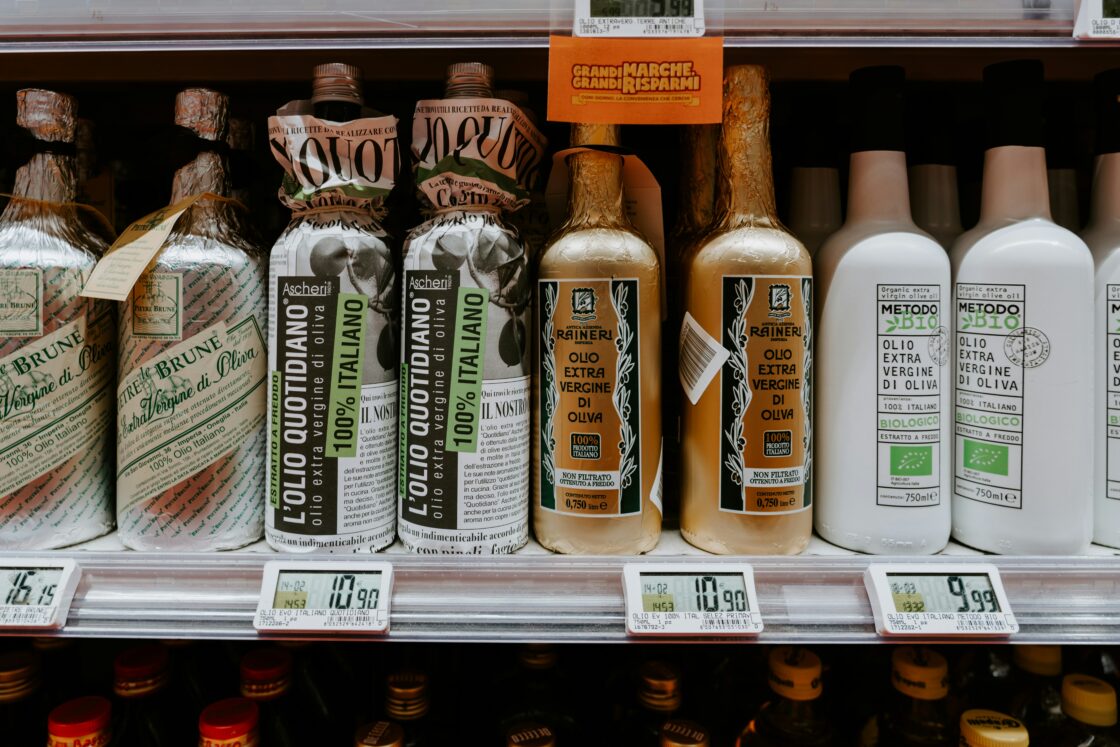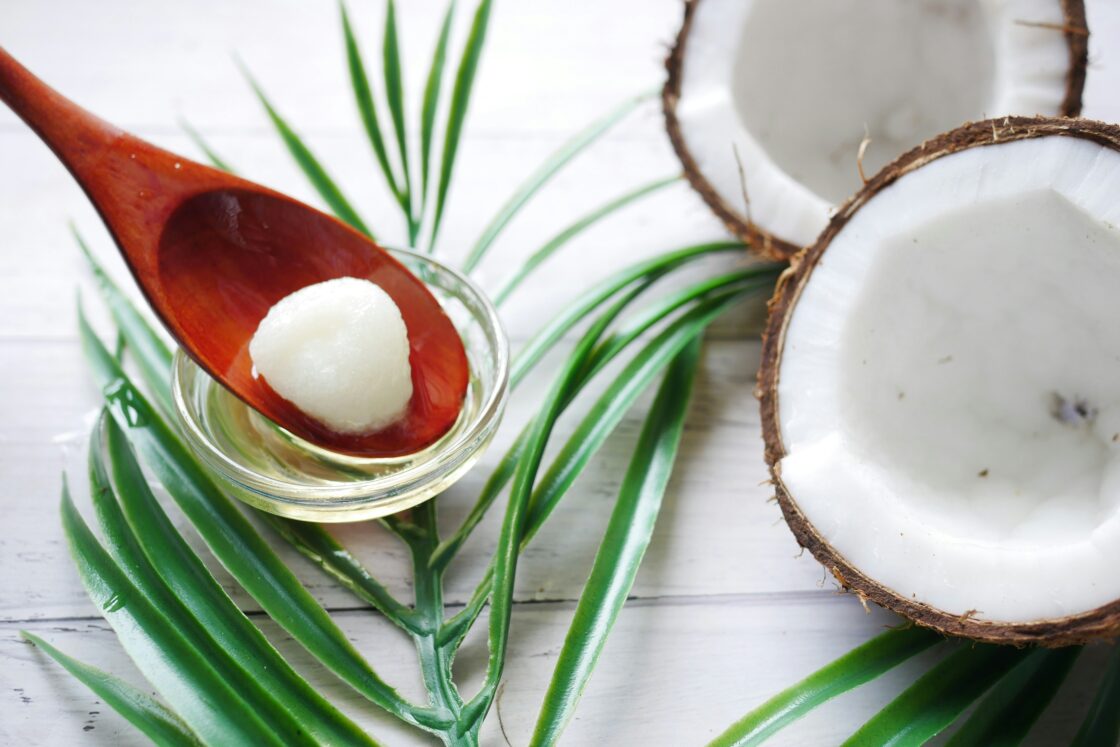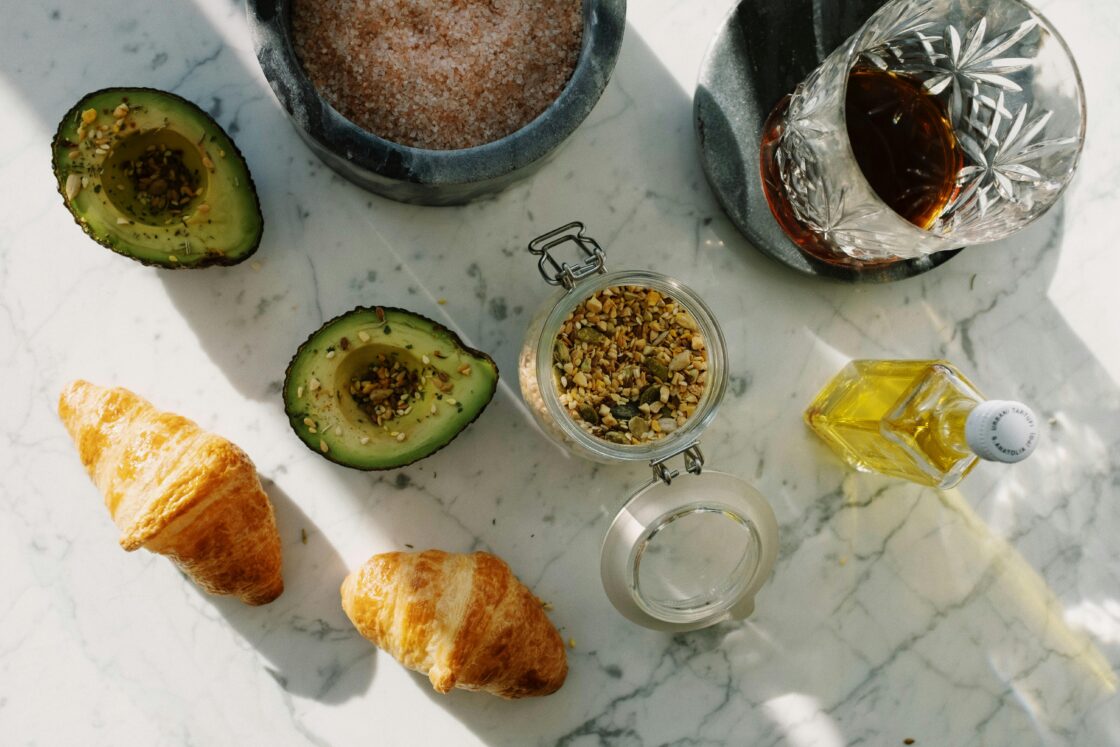Butter was evil; now it’s a superfood. Eating six small meals is better for our metabolism; no, wait, we all need to try intermittent fasting. It’s not uncommon for opinions on wellness to change as quickly as the wind, polarized by science and pseudoscience alike. And these days, there’s perhaps no arena of opinion more divided than the world of seed oils. Some champion them as heart-healthy musts, others say they’re toxins we need to avoid altogether. So which is it? Let’s dig into the truth to separate fact from fiction.
What Are Seed Oils and Vegetable Oils (And What’s the Problem With Them?)
Seed oils are a type of vegetable oil that gets extracted from the seeds of certain plants. Common seed oils include rapeseed (aka canola), corn, soy, sunflower, and grapeseed.
All seed oils are vegetable oils, but not all vegetable oils are seed oils. Vegetable oils can be derived from a variety of plant parts, like nuts and fruits (not just the plant seeds). Common vegetable oils that aren’t seed oils include olive, coconut, avocado, and palm.
While most sources of dietary fat boast a mix of saturated, monounsaturated, and polyunsaturated fats, vegetable oils and seed oils tend to be particularly high in monounsaturated fats (MUFAs) and polyunsaturated fats (PUFAs).
The Argument Against Vegetable and Seed Oils

While science has detailed some health benefits of MUFAs, like a reduced risk of cardiovascular disease1, many experts are wary of seed oils’ relatively high ratio of omega-6 to polyunsaturated omega-3 fatty acids – especially considering the average American diet is already low in omega-3s and high in omega-6s due to an overreliance on processed foods.
Some experts believe this imbalance of omega-6 fatty acids contributes to the inflammatory properties of seed oils. Dr. Joseph Mercola, Board Certified Family Medicine Osteopathic Physician (DO) and Author of Your Guide to Cellular Health, recommends eradicating them from our diets as much as possible, opting instead for “evolutionarily appropriate fats” like grass-fed butter, ghee, or beef tallow.
“These fats are more stable at high temperatures, support your cellular health, and provide essential fat-soluble vitamins,” says Mercola. “If you absolutely need an oil, choose those that are naturally low in [linoleic acid] and unadulterated, such as extra virgin olive oil, but be cautious of potential adulteration and ensure you’re sourcing high-quality, pure products.”
The Argument for Vegetable and Seed Oils
While some are firm in their crusade against vegetable and seed oils, it remains a controversial topic even among professionals, some of whom believe the demonization of these oils is misplaced. Ashley Reaver is a Registered Dietitian, lecturer at UC Berkeley, and the author of the forthcoming Simple Meal Solutions for High Cholesterol. She’s skeptical of the vitriol currently being hurled at oils like olive oil and avocado oil.
“The fear of seed oils started from a viral video, not from any new scientific research or evidence suggesting that they should be avoided at all costs,” she said. “All of the scientific literature conducted on human health points to seed oils having a neutral or beneficial impact on human health, especially when they replace animal fats.”
Busting Five Vegetable and Seed Oil Myths

“The fear of seed oils started from a viral video, not from any new scientific research or evidence suggesting that they should be avoided at all costs.”
Ashley Reaver, Registered Dietitian and UC Berkeley lecturer
The purported inflammatory side effects of seed oils are only the first of many myths we’ve been led to believe about these grocery store staples. So what’s the truth? We’re so glad you asked.
Myth #1: Seed oils cause chronic disease
Those in the anti-seed oils camp argue that seed oils cause degenerative diseases through inflammation. The theory that seed oils are inflammatory stems from their high concentration of linoleic acid, an omega-6 PUFA that Mercola refers to as “the most pervasive mitochondrial toxin in our modern environment.”
“A substantial body of epidemiological evidence supports that [linoleic acid] is a primary driver behind the alarming rise in chronic degenerative diseases,” Mercola says, linking it to to “a cascade of detrimental effects, including increased oxidative stress, systemic inflammation, compromised cellular energy production, and dysbiosis of your gut microbiome.”
But not everyone is as certain as Mercola regarding the dangers of linoleic acid. A 2015 study in the Journal of the American College of Cardiology found that higher intakes of polyunsaturated fatty acids were “significantly associated” with lower risk of cardiovascular and heart disease, and a 2017 meta-analysis of randomized control trials found that linoleic acid doesn’t have a significant effect on inflammation2. More recently, 2023 research in the International Journal of Molecular Sciences showed an association between a higher intake of omega-6 fatty acids and improved cardiovascular health and glucose metabolism3.
For Reaver, the preclusion against seed oils is far from unanimous in nutrition circles. In fact, she said, “you’ll be hard pressed to find nutrition professionals or nutrition researchers cautioning against the consumption of seed oils. There are many aspects of nutrition that actually will impact long-term health and the development of chronic disease,” she said. “Seed oils are not one of them.”
According to Reaver and many other nutrition experts, the recent demonization of these oils “is a distraction away from the things that really matter like eating enough dietary fiber (90% of Americans do not), eating enough vegetables (60% of Americans do not), limiting adding sugar (50% of Americans do not), and eating within your body’s calorie needs.”
Reaver went on to say that the true danger of seed oils isn’t the oils themselves, but the most common way in which they’re consumed: ultra-processed foods. “The elimination of ultra-processed foods can improve overall health and may lead to improved digestion,” she said, “but it cannot be singularly attributed to the reduction in seed oil consumption.”
Myth #2: Cooking with olive oil is dangerous

We’ve been told time and again to reserve our olive oil for drizzling, a recommendation made on the basis of cooking oil smoke points. A fat’s smoke point is the temperature at which it begins to emit smoke and break down, releasing inflammatory free radicals. While fats like peanut oil or clarified butter have fairly high smoke points (around 450 ºF), olive oil begins to smoke at just 325 ºF. Due to its lower smoke point, we’ve been told for years to use it cold.But around the world, people have long been cooking — and even frying — with olive oil. From Spanish croquettes to Tunisian vegetable kafteji, olive oil is pervasive as a high-temperature cooking oil.
“It is unlikely that oil is heated to a high enough temperature for a long enough time to cause serious rancidity that would be deleterious for health.”
Ashley Reaver
For Reaver, the idea that we can’t cook with olive oil came not from flawed science, but from the fact that we’ve been overestimating just how high our cooking temperatures are. “Oils that are high in unsaturated fats, like olive oil, are susceptible to rancidity when cooked at high temperatures,” she says. “However, it is unlikely that oil is heated to a high enough temperature for a long enough time to cause serious rancidity that would be deleterious for health.”
Indeed, with the exception of French fries, which take their second oil bath at around 400 ºF, most foods are fried at somewhere between 350 ºF and 375 ºF. And most extra-virgin olive oils are perfectly happy at that temperature. One study even showed that extra-virgin olive oil heated to 350 ºF for several hours showed no sign of oxidation4.
Even the pros at the Culinary Institute of America have changed their tune on cooking with olive oil. In a recent white paper on the subject, they wrote that “you can absolutely fry with olive oil with great results.”5
Myth #3: Coconut oil is a weight-loss superfood
Much like kale and açai berries, coconut oil was a flash-in-the-pan superfood of epic proportions. Once attributed with a range of near-magical qualities, from curing Alzheimer’s disease to lowering cholesterol and contributing to weight loss, coconut oil was the poster child of healthy cooking fats for several years.

If coconut oil has drifted into the shadows in recent years, it’s because many of its purported health benefits have been debunked. Studies failed to find a link between coconut oil and improved Alzheimer’s symptoms, and the Alzheimer’s Society wrote that “there is currently a lack of evidence to show that coconut oil plays a role in preventing or curing dementia or its symptoms.”6 And a 2022 research review found that, contrary to popular belief, coconut oil had a tendency to raise bad cholesterol levels7.
As for coconut oil’s supposed effects on weight loss, this all came down to its medium-chain triglycerides (MCTs). Pure MCTs have been found to diminish hunger signals and increase feelings of fullness, which led experts to recommend them for weight loss. But a 2017 randomized controlled trial in Physiology & Behavior found that the same effects could not be extended to coconut oil, whose fat content is only made up of 10 percent MCTs8. “The remaining fats are primarily long-chain triglycerides just like the majority of other fats,” explained Reaver.
So is coconut oil good for you, really? Reaver is somewhat neutral on the oil, saying we should avoid overuse. “Coconut oil itself does not have many unique factors as an oil other than its unique flavor,” she added. “While it is totally fine to eat occasionally, it should not be the primary cooking fat, and I am happy to see it out of the spotlight.”
Myth #4: Supermarket avocado oil is always a healthy choice
Avocados are an excellent source of heart-healthy monounsaturated fats, and compounded with their richness in fiber, they’re well-deserving of superfood status. And as you might expect, some of these benefits also translate to avocado oil.
A 2018 study in Nutrition found that avocado oil might reduce the effects of hypertension on the kidneys9, and a 2005 study in The Journal of Nutrition found that it increased the absorption of healthy carotenoids in other foods like salad and salsa10. A 2019 study in the International Journal of Rheumatic Diseases also indicated that avocado oil could be beneficial for people with hip and knee osteoarthritis11.

But while avocado oil certainly looks like a good choice on paper, in practice, things aren’t quite what they seem. “Many avocado oils available are adulterated with cheaper, high-LA seed oils, negating their purported health advantages and exposing you to the same harmful levels of linoleic acid found in other seed oils,” said Mercola.
Indeed, one 2020 study from UC Davis found that a whopping 82 percent of the “avocado oil” on the market was either adulterated or rancid12. If you decide to buy avocado oil, be sure you get it from a trustworthy source, and buy it in small quantities so that you can use it before it goes off.
Myth #5: Flaxseed oil is good for your hormones
Flaxseed oil has been touted for its hormone-balancing properties thanks to the presence of lignans, which contain phytoestrogens. These plant-based estrogens were once maligned as endocrine disruptors13, though more recent research has found they may improve menopausal symptoms14 and could even reduce the risk of developing breast cancer15.
Many were quick to extend the benefits of lignans to flaxseed oil. Indeed, a 2020 study published in Veterinary Medicine and Science seemed promising, showing that flaxseed oil could mimic the effects of estrogen in ovariectomized rats16. The study authors concluded that there was a potential for using flaxseed oil as a replacement for hormone replacement therapy (HRT). But a 2004 study in The American Journal of Clinical Nutrition showed that while flaxseed supplements modified urinary excretion of estrogen in postmenopausal women, they didn’t have an effect on bone cell metabolism17. Similarly, a 2023 study in Frontiers in Nutrition found that flaxseed supplementation had no role in the sex hormone profile of adults18.
“The few studies we have show there is no significant impact on sex hormones based on consumption of flaxseeds or flaxseed oil,” said Reaver. And while she noted that flax is one of the only non-marine sources of omega-3 fatty acids, along with chia seeds and walnuts, flaxseed oil is “particularly susceptible to rancidity due to its chemical structure (a high number of double bonds), which also gives it a low smoke point.” As a result, she cautioned, flaxseed oil should only be used as a garnish or dressing and not for cooking.
Overall, flaxseed oil should be appreciated for its nutty flavor rather than any supposed links to improved hormone health.
Separating Vegetable and Seed Oil Facts from Fiction
So after all that, is vegetable oil healthy? Are seed oils actually bad? Well, as you can see, it’s a bit complicated, and it varies from oil to oil. But overall, there’s no reason to demonize any single seed oil — and equally, there’s no need to elevate any single vegetable oil to superfood status.
Vegetable and seed oils are a reasonable alternative for other cooking fats like butter, but they should definitely be avoided when they come in the form of ultra-processed foods. As a rule of thumb, you’re probably better off working towards a balanced diet rich in fiber and whole foods than making a serious effort to eliminate seed oils.
Sources:
- https://pmc.ncbi.nlm.nih.gov/articles/PMC4424766/
- https://pubmed.ncbi.nlm.nih.gov/28752873/
- https://www.ncbi.nlm.nih.gov/pmc/articles/PMC10003459/
- https://www.researchgate.net/publication/5910647_How_Heating_Affects_Extra_Virgin_Olive_Oil_Quality_Indexes_and_Chemical_Composition
- https://static1.squarespace.com/static/5c5482a394d71a98976ca5a6/t/5d13931a5e3ccf00013df68e/1561563931589/CIA+Olive+Oil+and+the+Plant-Forward+Kitchen.pdf
- https://pubmed.ncbi.nlm.nih.gov/37980665/
- https://pmc.ncbi.nlm.nih.gov/articles/PMC9132222/
- https://pubmed.ncbi.nlm.nih.gov/28689741/
- https://pubmed.ncbi.nlm.nih.gov/29753173/
- https://pubmed.ncbi.nlm.nih.gov/15735074/
- https://pubmed.ncbi.nlm.nih.gov/31328413/
- https://www.ucdavis.edu/food/news/study-finds-82-percent-avocado-oil-rancid-or-mixed-other-oils
- https://pmc.ncbi.nlm.nih.gov/articles/PMC3074428/
- https://pmc.ncbi.nlm.nih.gov/articles/PMC7759898/
- https://www.sciencedirect.com/science/article/pii/S0022316622098017
- https://pmc.ncbi.nlm.nih.gov/articles/PMC8025639/
- https://www.sciencedirect.com/science/article/pii/S0002916522038308
- https://pmc.ncbi.nlm.nih.gov/articles/PMC10623424/
Source link

